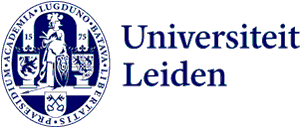
Goodbye SPSS, hallo R: ‘Now we can help students who like statistics to excel’
After the summer, the SPSS statistics programme will be replaced by the new ‘R’ software for first year students. Hemmo Smit and Sjoerd Huisman, both lecturers in Methodology and Statistics, initiated this major change in the curriculum. That did not happen overnight.

SPSS: it costs some students blood sweat and tears to learn just a bit about the programme while for others it’s a breeze. The statistics programme has been a firm fixture in the bachelor’s in Psychology for decades, but from September 2023 first-year students will be using the ‘new’ R software package. ‘It’s not really all that new because it’s been going since the nineties,’ Huisman laughs. But it is still a big step. Smit: ‘We thought it would just be a matter of exchanging one calculator for another. But we underestimated the impact: a choice like this has an impact on the whole programme.’
How did you eventually manage to push the change through?
Smit: ‘When we talked with the board about our idea, they set us a number of tasks. First we tested new teaching material that we had developed for the first block with students. The reactions were positive. After that, we asked other psychology programmes and universities about their experiences. Twente University, for example, switched years ago and a lot of psychology institutes in Germany also use R. Starting in December, we made a round of all the sections within the department to find out what colleagues thought about the idea. Some lecturers asked things like, ‘When am I going to learn the new programme? There’s already so much to do.’ All the points they made were understandable, practical concerns. So, we had some open discussions about them to talk through the issues and work out how it could be achieved.’
‘There were some understandable, practical concerns’ - Smit
Why do we need a new analysis programme?
mit: ‘SPSS is an excellent programme that lets you do a lot of things, but because it has a menu structure, it’s not so easy to learn what’s going on at the back end. That process is a lot clearer with R, which gives students a higher level of ‘statistical literacy’.’
Huisman: ‘At first, R asks a lot more of you; it’s a programming language. That sounds complex, but coding is a skill that’s going to be increasingly important in the future. Not only that, with R there’s a lot you can do with just a few commands. You can key in that you want to do a T-test and it will do it, instead of having to search for it in a menu. That means you have a lot more freedom than in SPSS. You can also simulate things, for example. That’s not really for first-year students, but there are a lot more options for people who want to do more with statistics later in their studies.’
‘Coding is a skill that’s going to increasingly important in the future’ - Huisman
Smit: ‘It lets you differentiate better between different levels. It's like running. You can say to students who are good at it: 'Just run another lap.' But with R you can suggest doing an obstacle course.'

Doesn’t the programming put people off?
Huisman: ‘In principle, R is less overwhelming to learn than SPSS. There, you get a whole menu to figure out in one fell swoop; in R, you start with a blank screen and build your knowledge bit by bit. You learn programming language the same way you learn French: word by word. For students who don't like numbers and coding, that’s not going to change. But now there are also going to be students who become more enthusiastic because you can do more with it.
‘In R, you have to say exactly what you mean, but that’s how science works too’ - Huisman
Added to that, the programme isn’t overly complex, but you have to say precisely what you mean. If you put a comma or bracket in the wrong place, you’ll get an error message. You have to treat R like a difficult child at the dinner table. If you ask, ‘Can you pass the salt?’, they’ll reply ‘Yes’, and nothing will happen. You literally have to give the command: ‘Give me the salt.’ That works well in the world of science: you have to explain what you mean accurately and precisely.'
What will this switch mean for research?
Smit: ‘It will bring more possibilities for researchers to work together, including in the area of open science. R is a free open-source software package, so all the coding is publicly available. You work with scripts: a kind of formula of analyses and edits that you can share and others can comment on. Other researchers can see your script and data and replicate them exactly. The replication crisis is one of psychology's biggest bugbears, and this programme can help resolve that.’
Follow the summer course 'Introduction to R'
The Graduate School of Social and Behavioural Sciences in collaboration with the Department of Methodology and Statistics and researchers in the field of Methodology and/or Statistics of the other Institutes provides training courses for PhD candidates, teachers and other researchers. Costs will be reimbursed by the institute.
Register now